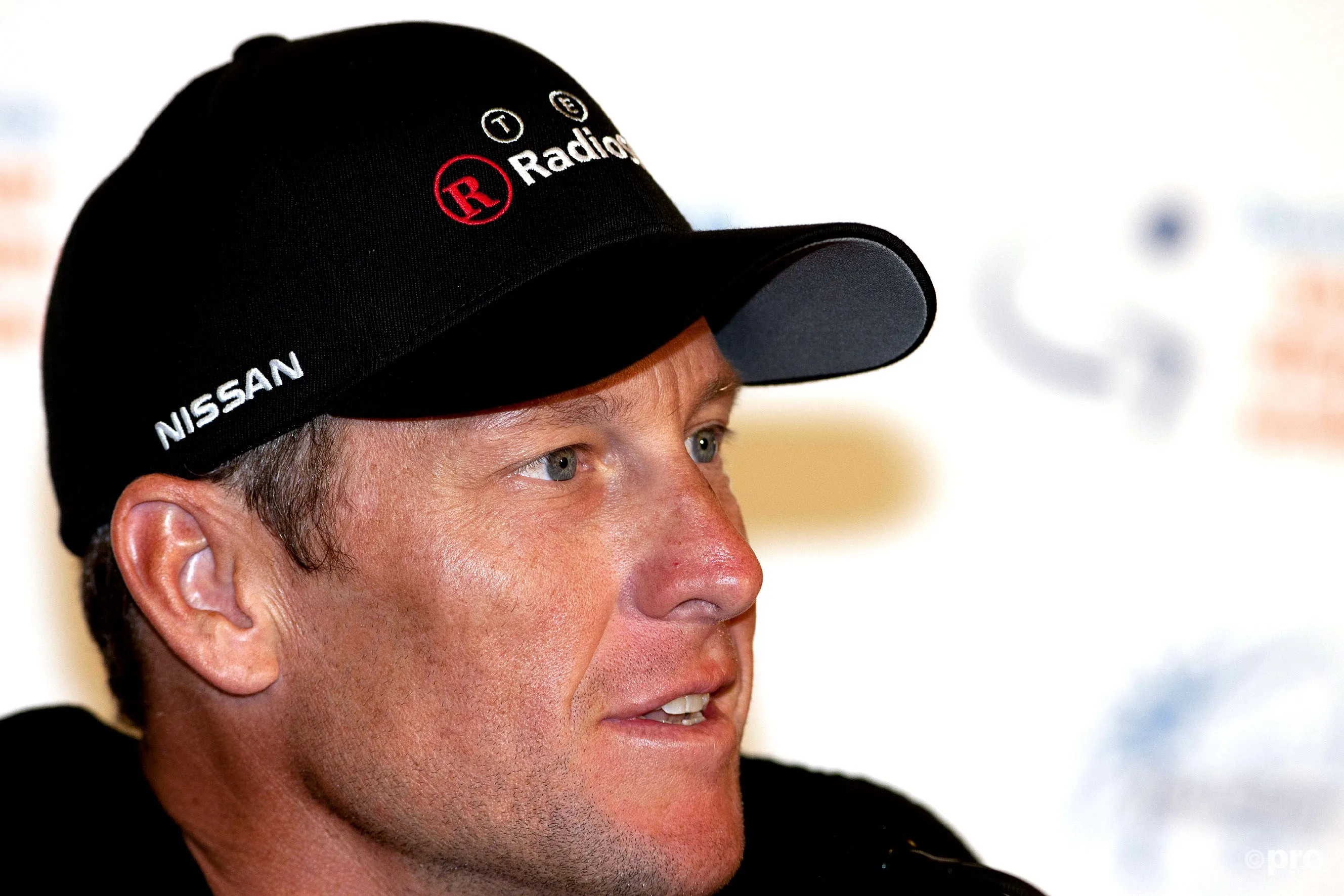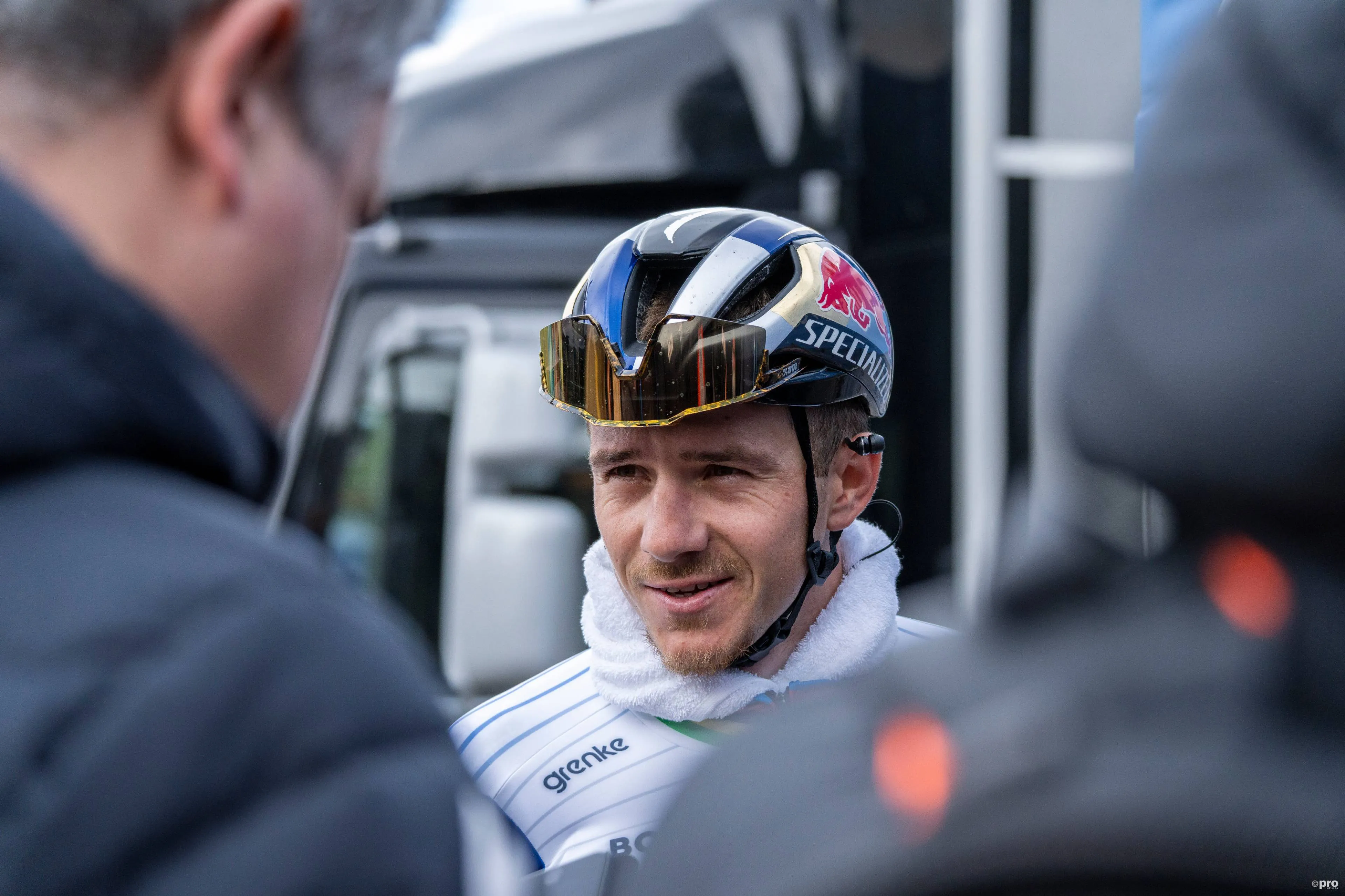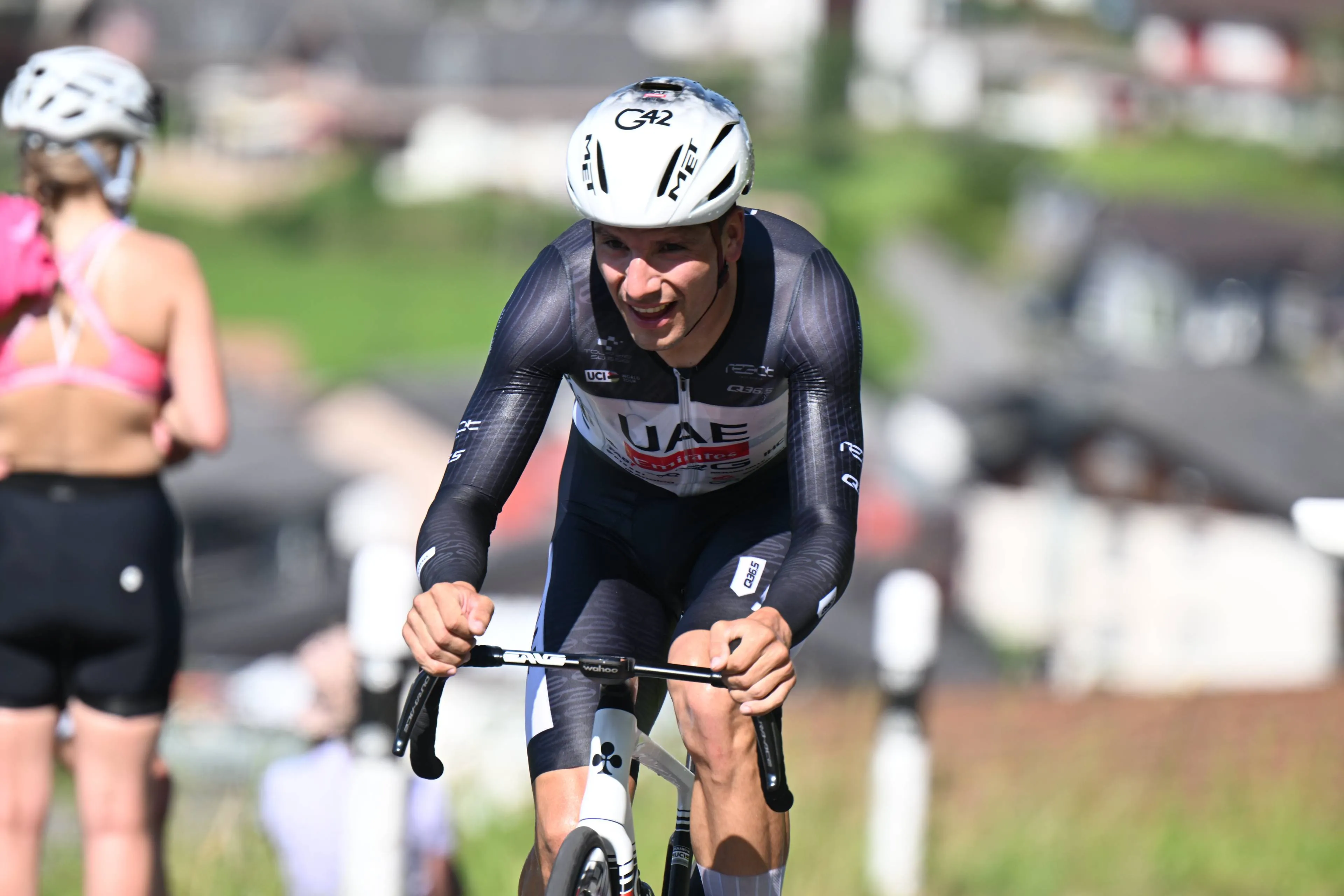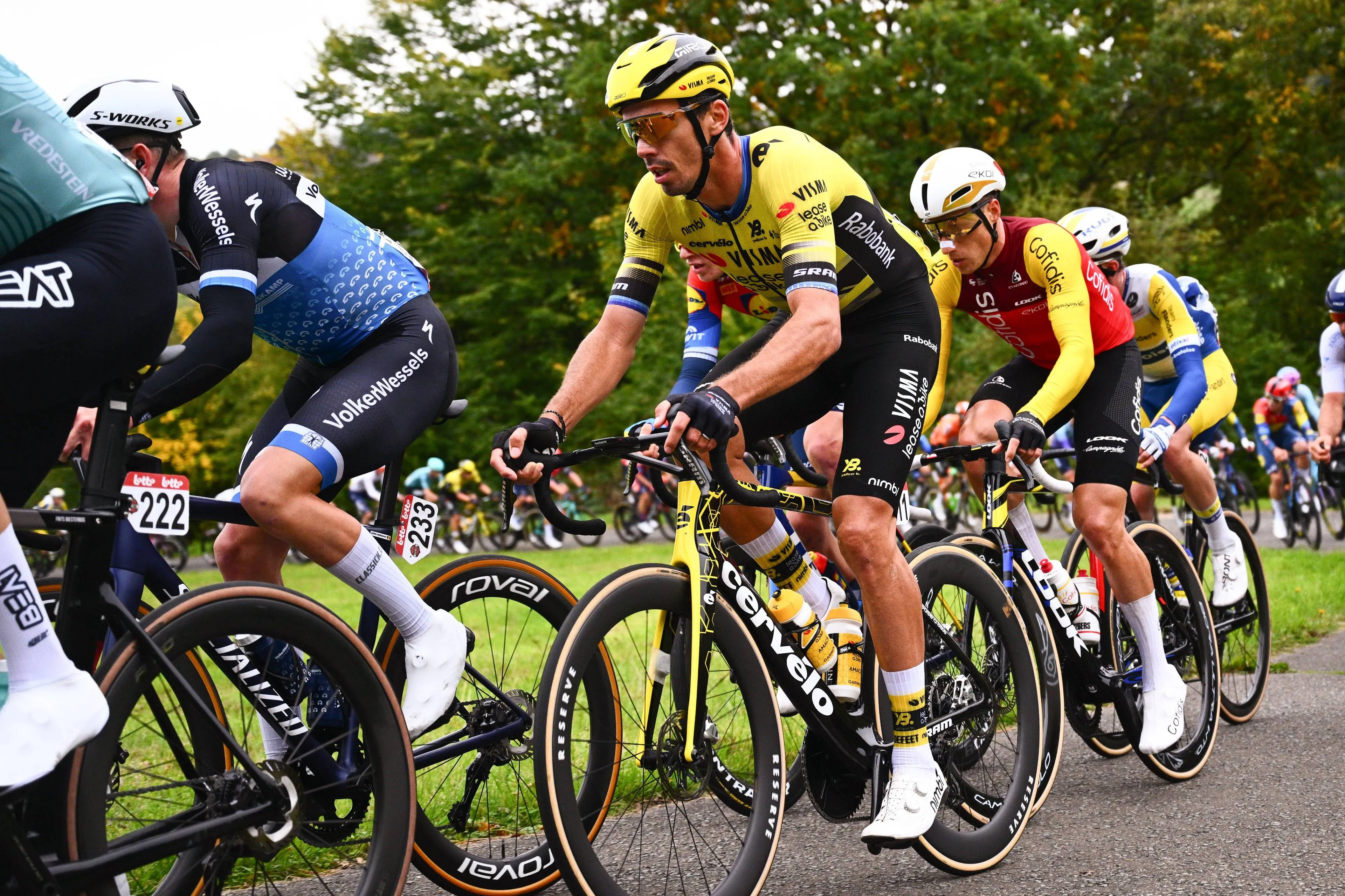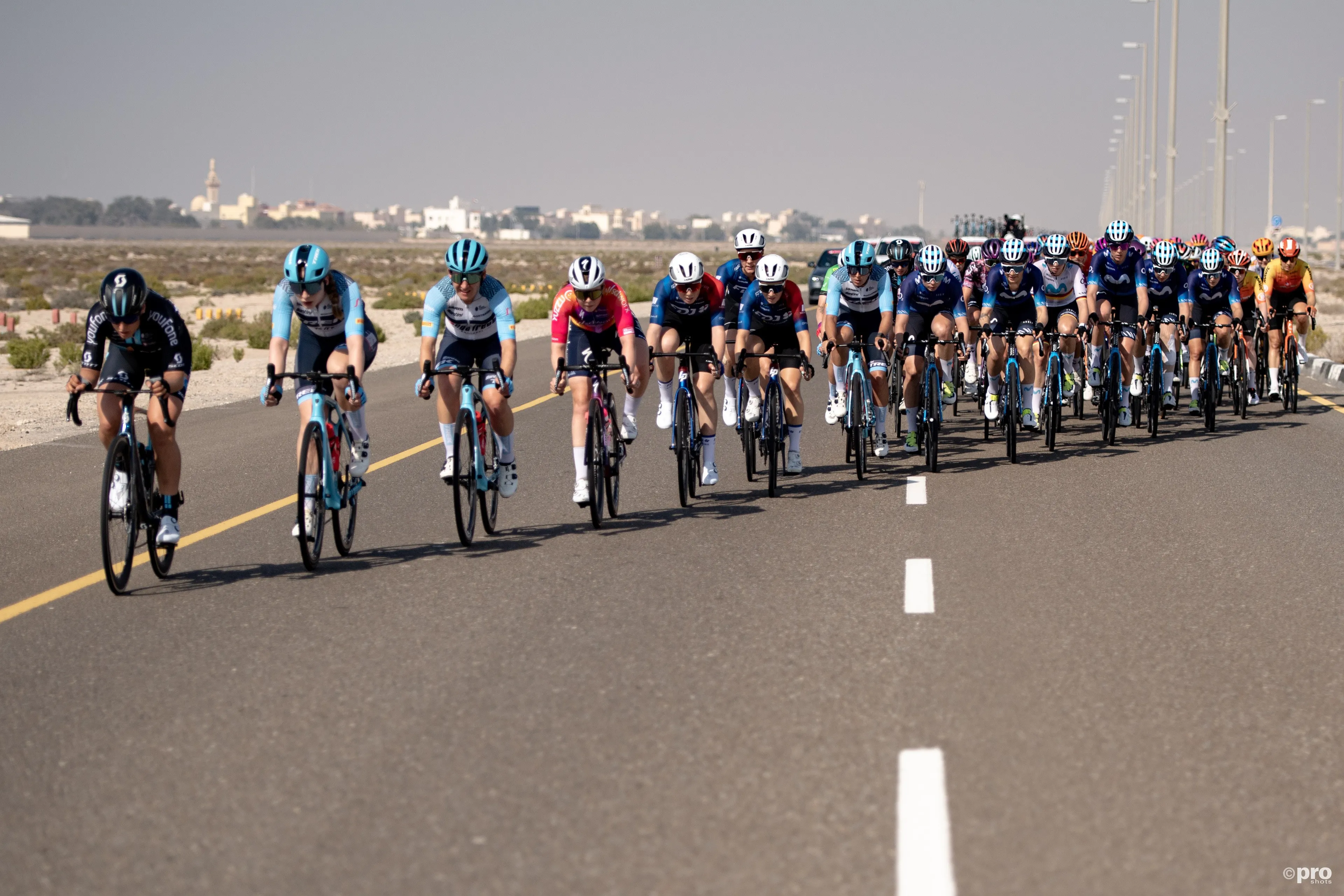Chechu Rubiera on the sanctions against the US Postal Service and Lance Armstrong: "There was hatred towards the figure of Armstrong, Pantani tested positive and nobody attacked him"
CyclingMonday, 01 May 2023 at 21:49
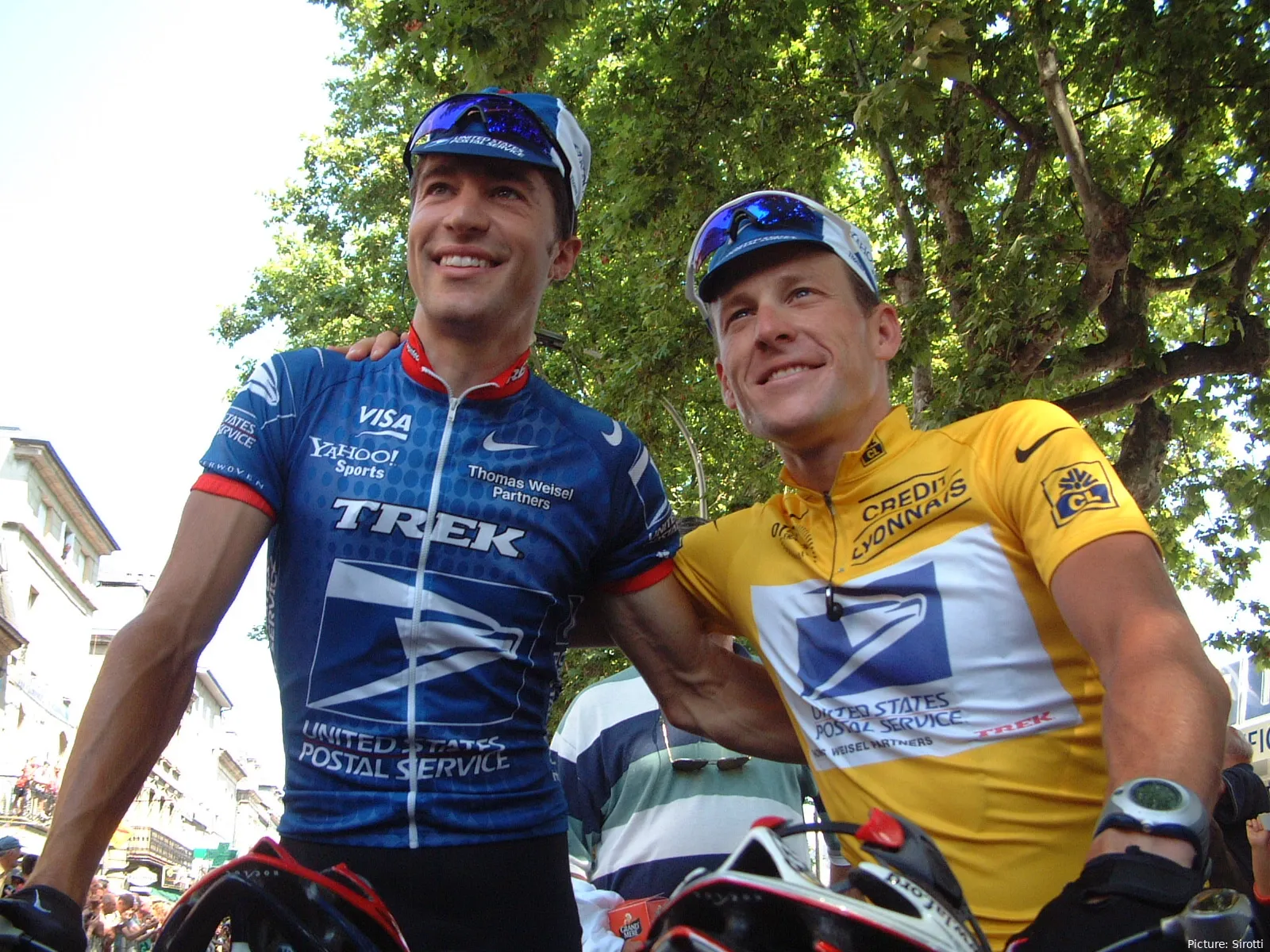
Chechu Rubiera was the first luxury domestique Lance Armstrong had at US Postal. Johan Bruyneel signed him from Kelme, a team in which he had achieved 2 great stage victories in the Giro d'Italia and had also twice finished in the top 10 in the premiere Italian stage race.
The Spaniard accompanied Armstrong in his triumphs in the Tour de France between 2001 and 2005, being key in the mountain stages. That impressive US Postal train that ensured no rider was capable of breaking free off the front was led by the man from Gijón.
Read also
In an interview with the Jot Down teammates, Rubiera recounted how his signing for the North American team came to be: "They called me because they needed to strengthen the team in the mountains. The offer was to compete in the Tour de France as Armstrong's domestique and, the rest of the season, an alternative calendar in which I was more free and also had options to shine. I also wanted to learn English; something that I saw could serve me the rest of my life."
He explains Armstrong's strategy to win an important stage of the 2001 Tour. "When the Tour reached the Pyrenees and Alps, there were only three of the team left: Armstrong, Roberto Heras and me. We could not cope with the control of the race, and Armstrong, in a strategy that was very cool to see from a fan point of view, made everyone believe that he was not well and went to the tail so that others could take the lead. control. Arriving at the foot of Alpe d'Huez, we attacked and won the stage; That's where Armstrong sealed the Tour."
Read also
DOPING
The interesting interview with the Jot Down companions reaches its climax when Rubiera goes into detail about doping and the fact that the UCI decided to take the Tour de France from Lance Armstrong and not give it to the second placed riders.
"When Armstrong is sanctioned and the tours are taken away, they are not given to the second, when it was always understood that if the first one doped, it was said 'you out', and the second the winner. Those tours were deserted. The organizers , the UCI, they said: Come on, we took it from Armstrong, but what do we give it to, to Zülle, who was in the Festina case; to Ullrich, who was in Operation Puerto...? Now, fortunately, the mentality of the athlete, that of the sponsor and that of the fan are different; everything changed".
Read also
He was asked about the fact that USADA (the American anti-doping agency) had described the US Postal doping of those years as "the most sophisticated, professional and successful doping program in the history of sport":
"Well, it seems to me that it responds to a feeling of hatred or animosity towards the figure of Armstrong on the part of the people who were at that time - I don't know if they are still now - managing the World Anti-Doping Agency and especially the American Anti-Doping Agency. Armstrong had a personal struggle with them and they with Armstrong; there was something personal there."
Read also
Chechu Rubiera affirms that what the US Postal did was also done by many other teams and brokers who, however, did not receive a penalty as strong as Lance Armstrong:
"What you can read that was done in the US Postal Service, you can also read that it was done in Telekom or ONCE; and yet, the objective was always Armstrong; to destroy Armstrong. Pantani tested positive and nobody attacked him "Although he did end badly, psychologically sunk. Ullrich also had problems and I don't think the World Anti-Doping Agency dealt with him like they did with Armstrong. Other runners who admitted they had doped or tested positive were told:" Come on, a two-year sanction", and yet the US Postal workers, the doctors and others, were sanctioned for life."
claps 2visitors 2
Just in
Popular news
Latest comments
- Ego and self regard are at the center of most human folly.TheOlderIGetTheFasterIWas18-02-2026
- You can't win 'em all. These early season races at this level are good because it shows where you are weak and need work.awp18-02-2026
- This is what I wrote 12-02-2026 10:00: "As far as I'm convinced, Remco still has "zero" wins. I invite Remco to stop in Siena to meet his Slovenian master, Pogi the G.O.A.T... but no, it's better to run away and hide. His fans will somehow defend and glorify him. Let me repeat, he still has zero wins in 2026. If someone doesn't have a high enough IQ to understand what I'm talking about, it's because they don't recognize the low ranking F category races. If Remco will beat Del Toro and Adam Yates in the UAE Tour, then I will consider this to be his first win in 2026. Ad acta." PS: Remco still has zero wins. His second and third class races don't count. The first real race comes along and Mustafa Remco fails.Mou-Cro-HR18-02-2026
- This is what I wrote 12-02-2026 10:00: "As far as I'm convinced, Remco still has "zero" wins. I invite Remco to stop in Siena to meet his Slovenian master, Pogi the G.O.A.T... but no, it's better to run away and hide. His fans will somehow defend and glorify him. Let me repeat, he still has zero wins in 2026. If someone doesn't have a high enough IQ to understand what I'm talking about, it's because they don't recognize the low ranking F category races. If Remco will beat Del Toro and Adam Yates in the UAE Tour, then I will consider this to be his first win in 2026. Ad acta." PS: Remco still has zero wins. His second and third class races don't count. The first real race comes along and Mustafa fails.Mou-Cro-HR18-02-2026
- OK, let's stop with the BS. Remco Mustafa didn't have any cramps, 100%. The only truth is, Remco is not the great cyclist that the Belgians and his fans want us to think. Ad acta!!!... Once in the fall of 2025 I said that Remco's chances of following Pogi are equal to my chances, there is no difference. The only difference is that I'm in front of a TV and Mustafa is acting and making excuses live in front of an audience of millions. Ayuso and Remco are the biggest liars in the peleton.Mou-Cro-HR18-02-2026
- I just hope that he just says that he got cramps and that's it, rather than some long-winded excuse which makes him seem even more of a piece of...
 Rafionain-Glas18-02-2026
Rafionain-Glas18-02-2026 - finally, a team that does something smart. I could never understand why Ineos would like Egan train as he did alone. put a motorbike behind him with an earpiece to call out issues above. same with remco crashing into a postal truck.mij18-02-2026
- Wow, that is not a good sign for Remco. Great win for Tiberi!Pedalmasher18-02-2026
- Great champion Remco but his profile is more suitable for Ardennes-like races and tour with no very hard climbs. Not only Tadej and Vingegaard, there are a lot of younger cyclists (del Toro, Ayuso, maybe Seixas, Nordhagen and others) that will soon be big GC boys.
 maria2024202418-02-2026
maria2024202418-02-2026 - Evenopoel 1st real test, and he failedZamorano18-02-2026
Loading
Una relación en la que saltaron chispas: @albertocontador & @lancearmstrong. #InformeGregarios
2 Comments

